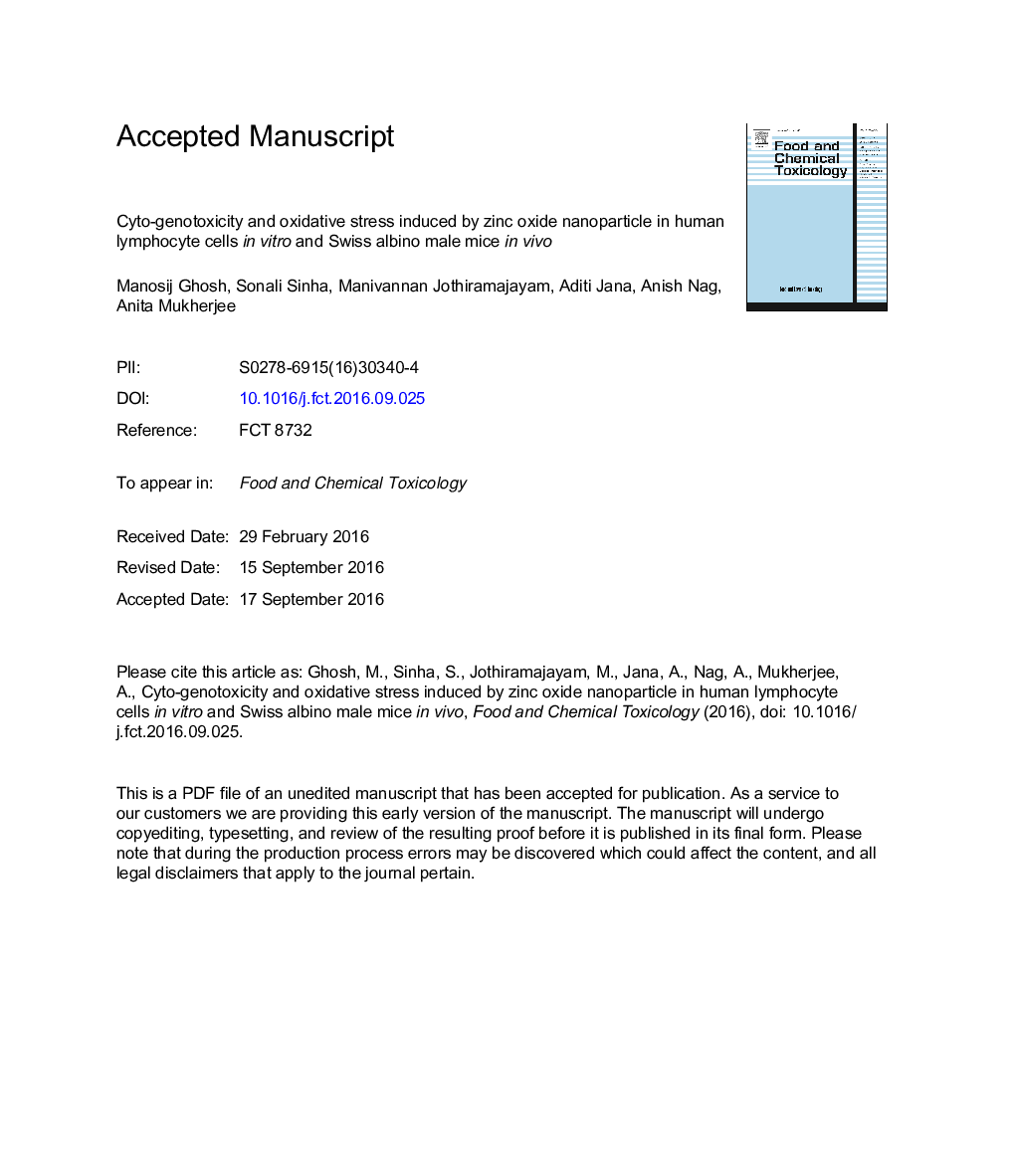| Article ID | Journal | Published Year | Pages | File Type |
|---|---|---|---|---|
| 8549290 | Food and Chemical Toxicology | 2016 | 40 Pages |
Abstract
ZnO-np has immense potential and application in cosmetic and health care sectors. Hence it was imperative to assess the toxicity/safety of these nanoparticles. In this study, we have evaluated the effects of ZnO-np in human peripheral blood mononuclear cells (PBMCs) in vitro and in Swiss albino male mice in vivo for cyto-genotoxicity and oxidative damage. In vitro results showed that ZnO-nps were weakly genotoxic, induced significant decrease in mitochondrial membrane potential and was capable of ROS generation, leading to apoptosis. In bone marrow cells in vivo, reduction of mitochondrial membrane potential (MMP), increased oxidative stress and G0/G1 cell cycle arrest was observed along with chromosome aberrations and micronuclei formation. In liver cells DNA damage and induction of oxidative stress with concurrent decrease in inhibition of antioxidant enzymes were noted. These in vitro and in vivo results demonstrated that ZnO-np induced genotoxic response and ROS production leading to apoptotic cell death and established a good co-relation between the two biological systems. More importantly, the results stress on the need of multiple endpoint assay-approaches, with an in vitro-in vivo study design to assess nanoparticle toxicology.
Keywords
Related Topics
Life Sciences
Agricultural and Biological Sciences
Food Science
Authors
Manosij Ghosh, Sonali Sinha, Manivannan Jothiramajayam, Aditi Jana, Anish Nag, Anita Mukherjee,
